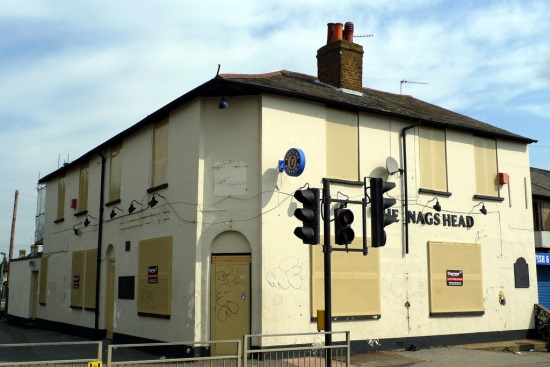It is no great secret that the one-time Great British tradition of popping down to the local pub for a “swift half” after work is a thing of the past in many communities. However, with the Great British Beer Festival in full swing, the effect that this is having on both independent and chain operated pubs has truly become apparent.

As a result, pub closures have become hugely commonplace, with many towns and cities across the country counting boarded up bars as a key aspect of their high street. The problem has especially affected Blackburn, according to drinks trade analyst CGA, which saw 28 pubs close down in the year to December 2012 – a staggering 20 per cent of all licensed premises in the town.
This seems to be something of a phenomenon in the North West of England, with other towns and cities such as Bolton, Preston and Oldham all featuring in the top ten of high localised closure rates. However, further south, Greenhithe in Kent and Chigwell in Essex have also lost more than 50 per cent of their pubs since 2007, proving that the issue is much more widespread than originally thought.
Landlady Carol Davies of one of Blackburn’s surviving pubs, the Clifton Arms, believes that the tough economic conditions have forced many of her customers into the arms of cheaper supermarket alternatives.
She says; “It has become tougher, more difficult, with the prices and people losing their jobs.
“The supermarket prices are so unreal that people are choosing to buy beer and drink it at home.
“I probably have eight or nine gentlemen that are by themselves and they want to come out and talk to other people, but some of them can’t do that anymore.”
Chief executive of CGA strategy, Jon Collins, agrees that supermarkets are playing a huge role in the closure of pubs. Furthermore, he believes that supermarkets benefit yet more from pub closures as this opens up available commercial space for them to monopolise – a practise he calls “adding insult to injury.”
He says; “A decade or 15 years ago, pubs that were originally cinemas in the centre of towns were being turned into apartments; that fell out of favour.
“It is more supermarkets now – they make perfect sites for Tesco Metros or similar.
“Supermarkets are seen as the prime cause of pubs closing down and they are taking over those sites.”
Fortunately, there do appear to be signs that the tide of closures is abating somewhat. During 2008 figures peaked at 52 closures per week on average, whereas in the last quarter of 2012 this had slowed to only 18 according to CGA.
Although Mr Collins estimates that a further 5,000 pubs will have closed nationwide by 2018, developments within the leisure industry have seen bars staying open later at the weekend and organising events designed to draw in young people during the week.
Hopefully, with the economy strengthening and consumers beginning to spend once more, the damage done to one of Britain’s most treasured industries can be reversed in the years to come.
Do you think local landlords could be doing more to attract higher levels of custom – perhaps organising “curry nights” or putting on a live music act during the week?